Keywords: Mandatory Detention
-

AUSTRALIA
- Fatima Measham
- 16 January 2013
15 Comments
Ranjini turned up for a routine catch-up with her caseworker only to be told she was deemed a security risk and that she and her young sons would be detained indefinitely. Days later she found out she was pregnant. Last night, she gave birth to that child, a son who will be an Australian citizen.
READ MORE 
-

RELIGION
- Frank Brennan
- 14 September 2012
4 Comments
In the lead up to the election, Tony Abbott and Scott Morrison are sure to continue insisting that the Gillard Government's Pacific Solution Mark II will not work. In all probability this will undermine the efficacy of the Gillard Solution in stopping the boats. Read the full text of Fr Frank Brennan's address to the Migration Institute of Australia, Menzies Hotel, Sydney, 14 September 2012
READ MORE
-
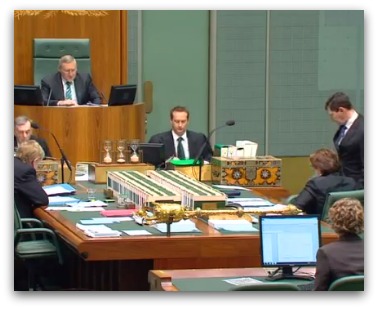
RELIGION
- Frank Brennan
- 17 August 2012
26 Comments
All major political parties now hope they can confine people in Nauru for years on end without any prospect of court supervision and without any need for Parliament to revisit the matter. We have reached a fork in the road between decency and deterrence. As a nation we have taken the low road, inviting the newest signatory to the Refugees Convention to emulate our indecent behaviour.
READ MORE 
-
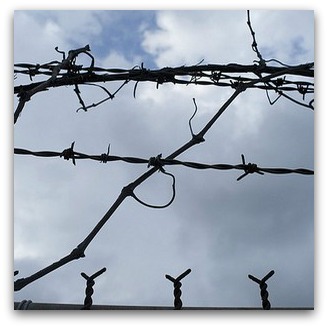
AUSTRALIA
- John Menadue
- 26 July 2012
9 Comments
There is a lot of political point-scoring over whether particular countries have signed the Refugee Convention. But there is no signatory country on the route used by almost all asylum seekers fleeing to Australia. A regional framework must be built on what's available — such as the Malaysian agreement.
READ MORE 
-
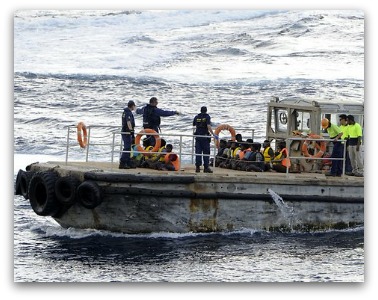
AUSTRALIA
- Susan Metcalfe
- 27 June 2012
22 Comments
It should be mandatory for anyone writing on asylum seekers to spend time visiting detention centres. Many commentators ignore the hard work of those who have. Moreover the politicians are too poll driven to even explain the human desperation that leads to boat journeys.
READ MORE 
-
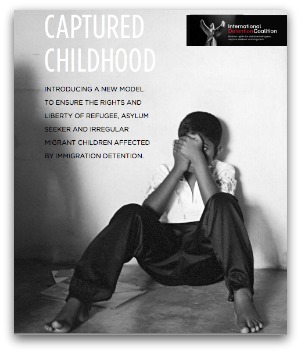
AUSTRALIA
- Michael Mullins
- 26 March 2012
16 Comments
Julian Burnside taunted his audience at La Trobe University in 2010 with the suggestion that we take a couple of children out of detention and publicly execute them. His point was that we are not bothered by the mental torture of children in immigration detention because it is out of sight.
READ MORE 
-

AUSTRALIA
- Lyn Bender
- 10 January 2012
9 Comments
Employed at the centre as a psychologist, I witnessed riots, hunger strikes, attempted suicides and severe depression. I realised I had a profound ethical dilemma: in being compliant to the administration, I was unable to ensure my duty of care towards these people. So I became a mole. Published 27 September 2011
READ MORE 
-

AUSTRALIA
- Kerry Murphy
- 08 November 2011
17 Comments
Last week there were three significant events affecting refugees including, tragically, more deaths. The use of language in the debate about asylum seekers is always striking, and has evolved and adapted over the years. It does not always reflect reality.
READ MORE 
-

AUSTRALIA
- Lyn Bender
- 28 September 2011
12 Comments
Employed at the centre as a psychologist, I witnessed riots, hunger strikes, attempted suicides and severe depression. I realised I had a profound ethical dilemma: in being compliant to the administration, I was unable to ensure my duty of care towards these people. So I became a mole.
READ MORE 
-

AUSTRALIA
- Kerry Murphy
- 13 September 2011
19 Comments
Yesterday the Government announced it will change the Migration Act to enable the Malaysia solution to go ahead. This latest action reinforces rhetoric about queues and people smugglers that obscures the real effects and motivations of current asylum seeker policy.
READ MORE 
-

AUSTRALIA
- Kerry Murphy
- 24 August 2011
4 Comments
This week as we mark the 10th anniversary of Tampa, the High Court is hearing a legal challenge to the Malaysian solution and an inquiry into suicide and self-harm in detention is underway. Meanwhile a new report hopes to change the direction of the debate on refugees.
READ MORE 
-
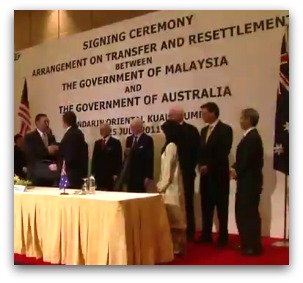
AUSTRALIA
- Kerry Murphy
- 27 July 2011
3 Comments
An old legal maxim is 'hard cases make bad law'. Maybe complex cases compromise policy. Refugee law and policy is complex and the Malaysian agreement signed this week is another example of a compromise on human rights principles for political expedience.
READ MORE 